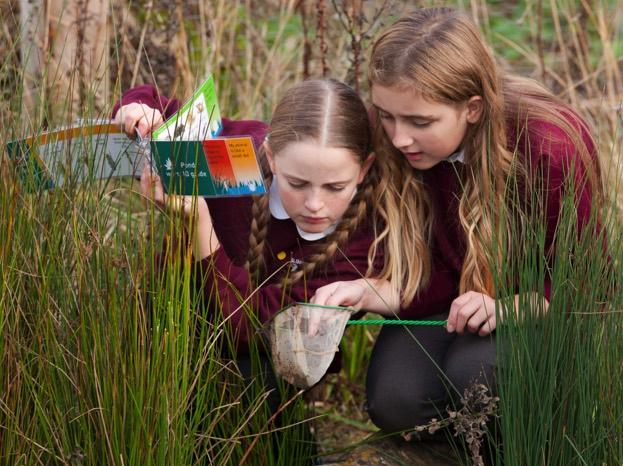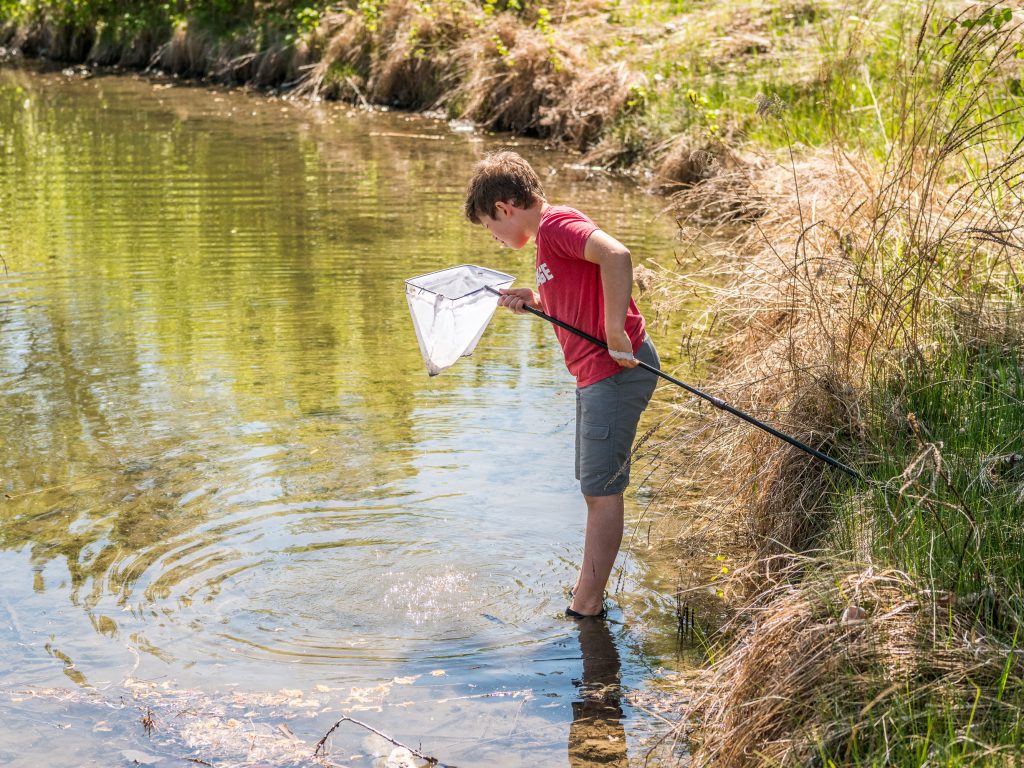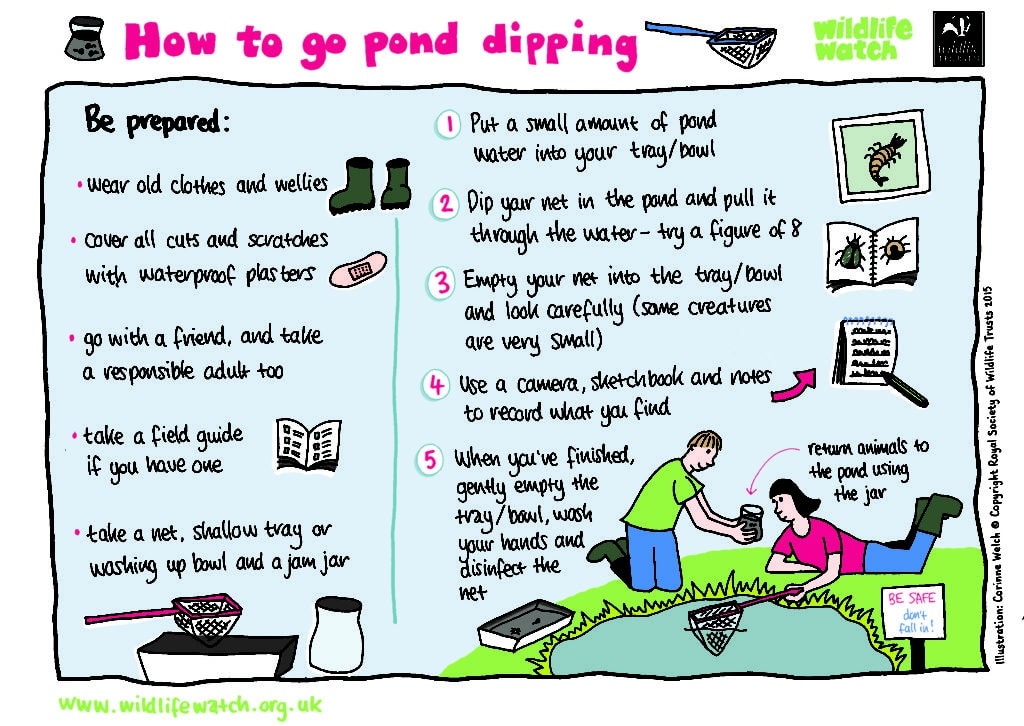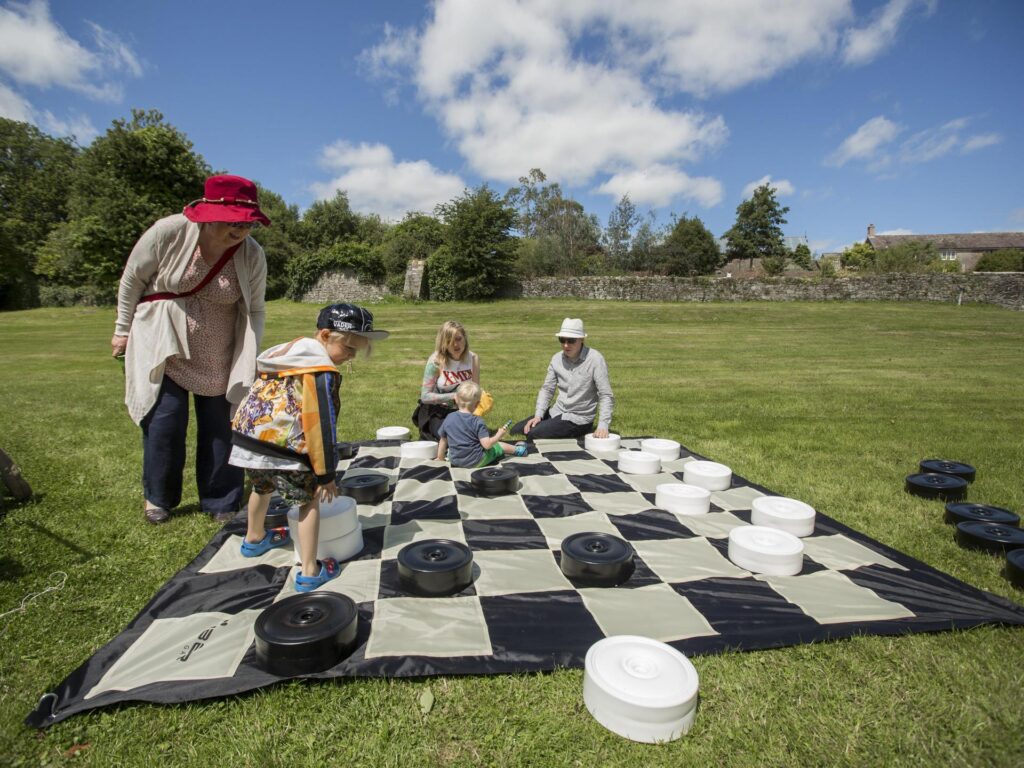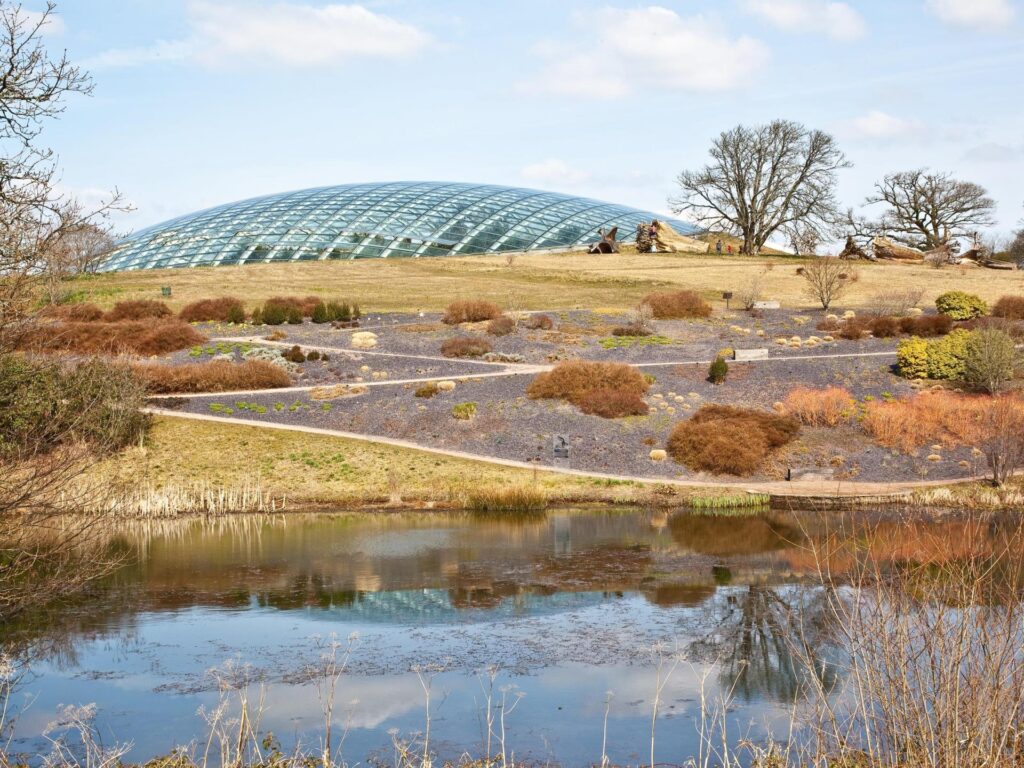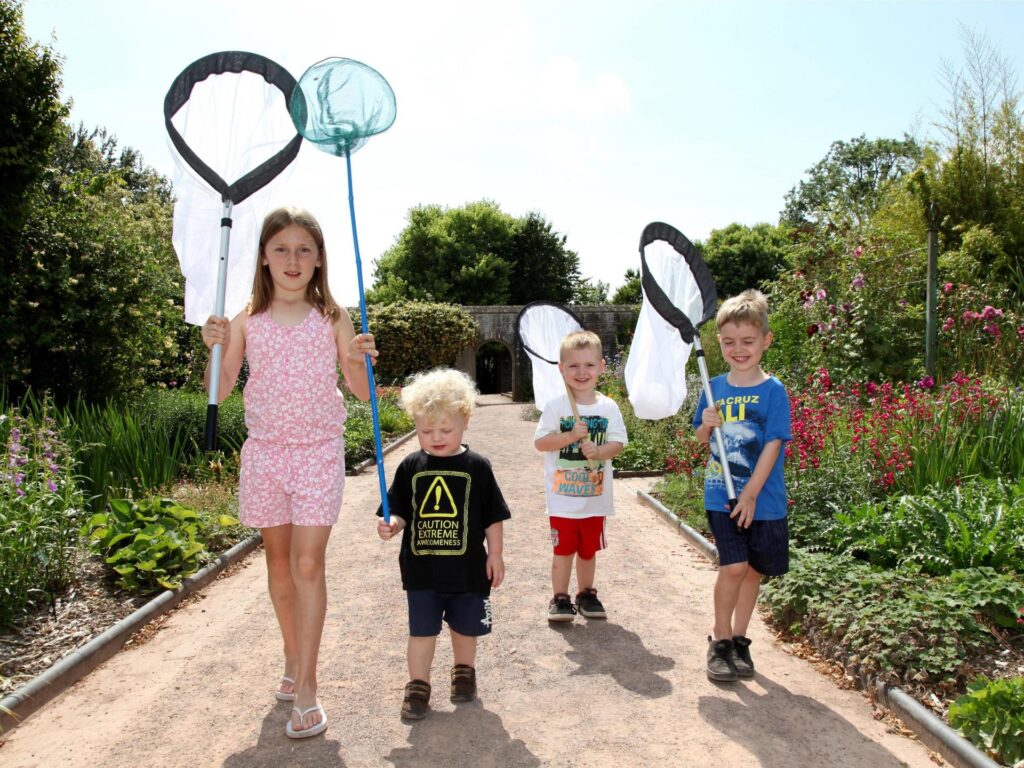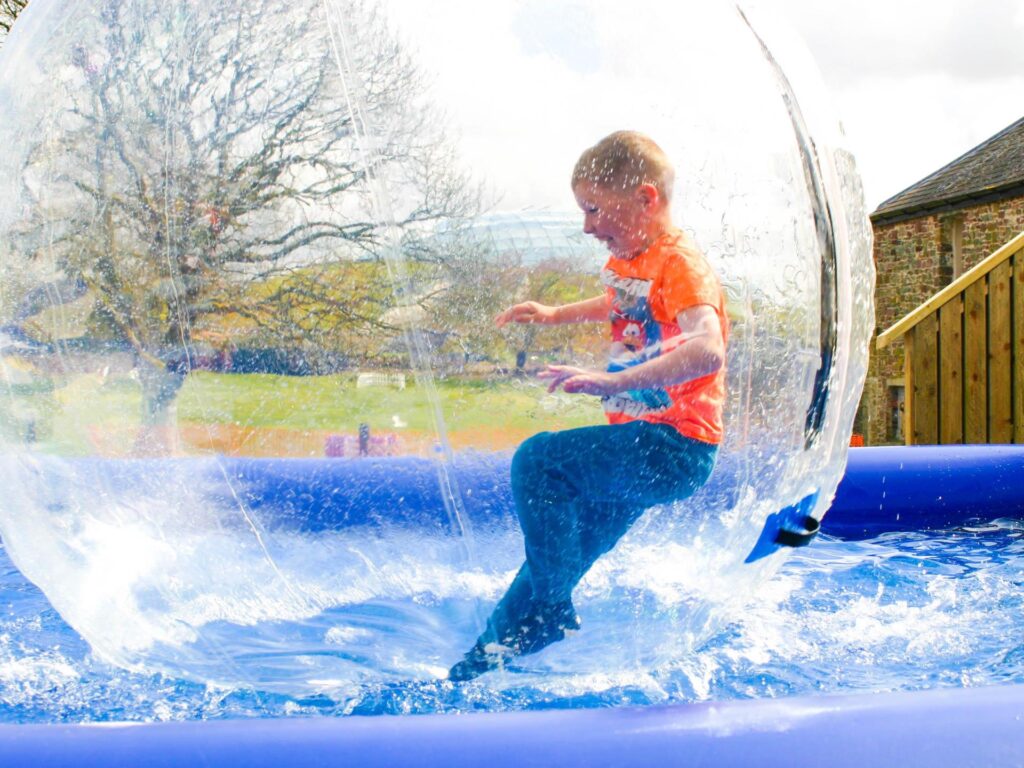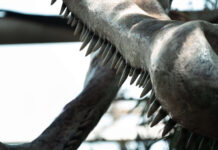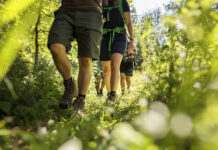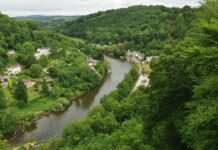When I was a kid I remember heading off with my mates, bucket and net in hand, off to the local park and we’d go splashing in the tiny, mud filled stream in search of hidden creatures. And boy did we find some evil monsters. Tadpoles, frogs and even, most fearsome of all, the stickleback fish. I mean this thing was truly hideous, then again I was probably 6 or 7, so even a little tiddler frightened the living daylights out of me.
You have to remember this was long before we had mobile phones or the internet, yes kids, that time really did exist. In fact a lot of us didn’t even have a house phone. Clearly my real name is Fred Flintstone.
In any case, no phones or internet meant we used to play outside, go fishing in the local park, normal things that kids did, and you know what, it was brilliant. We’d like to bet bet kids glued to their phones won’t have those sort of memories to look back on?
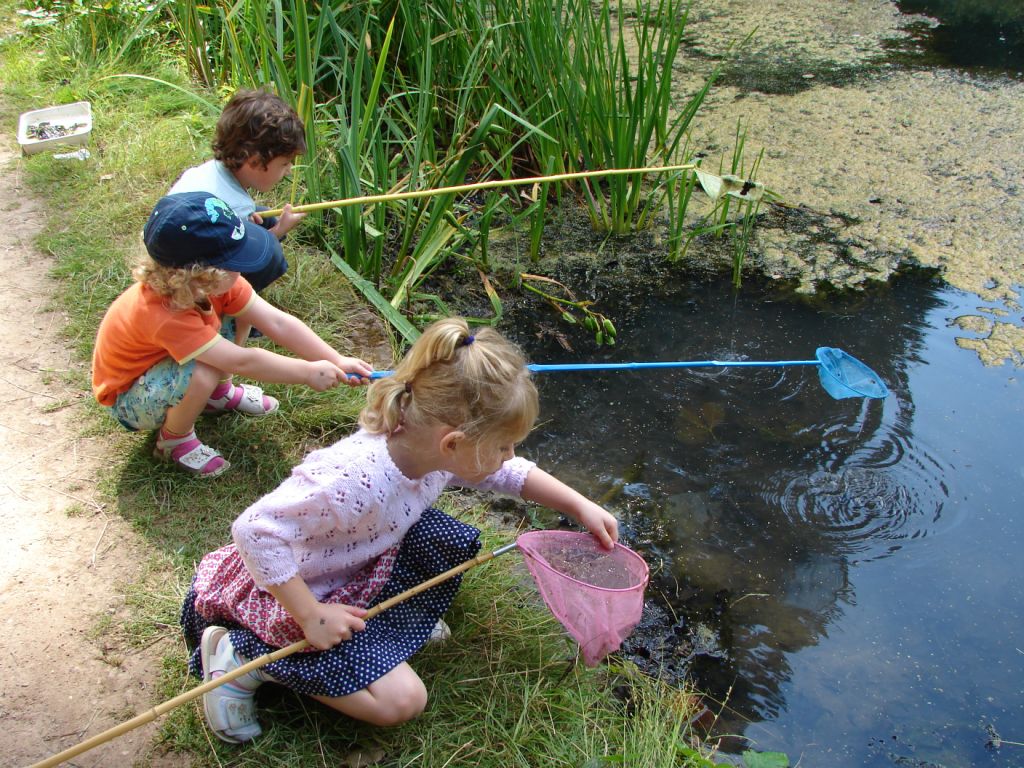
That’s why we love the activities they’re running at NATIONAL BOTANIC GARDEN OF WALES, which is an amazing place to visit anytime.
They have ponds (three in fact) where the kids can go in search of newts, pond skaters & water beetles. The creature which share the water with bizarre microscopic life forms. Vicious dragonfly larvae lurk in the dark silty depths, hoping to feast on tadpoles, snails and water spiders. Sounds lovely, doesn’t it?
Just a little word of advice from the people in the know at the gardens –
‘please don’t pond dip on your own. They carefully manage these dipping ponds to protect their biodiversity and limit the spread of disease.’
Wouldn’t it be really good to get the kids detached from their tablets and phones, and attached to this simple, but pleasurable side of nature?
Never quite knowing what underwater creatures they’ll find living in the murky depths. If it’s half as scary as the stickleback who pricked me in the finger, the kids are going to have one incredible time. And we hope the only phone we’ll see is the one you use to capture some great pictures.
Pond dipping is more than simply a fun family activity, it allows our children to experience, first-hand, their local ecosystems and gives them skills and knowledge that books and screens cannot. Pond dipping can be enjoyed by the whole family, toddlers to adults. For children who don’t enjoy free play outside it can work well as it gives them a purpose, something to do. It’s fun too as the children are excited to see what they can catch.
We actually did a little bit of homework into this and it really is a great thing to do with the kids. And the people at Montesorri really know their stuff.
Some of the educational benefits of pond dipping include:
- Observe full lifecycles in person – they can look very different in person and hands-on learning is preferred.
- Learn how to identify common pond organisms.
- Develop basic pond dipping skills.
- Learn how to use identification guides.
- Learn how to monitor the life and health of local ecosystems.
- Prepares the child for future fieldwork.
- Develop skills such as sketching and documenting field work.
- Develops the child’s eye for locating small and camouflaged pond organisms.
- Develops a greater understanding of how local ecosystems work.
- Greater appreciation for biodiversity.
- Fantastic language work for developing scientific/naturalist/environmentalist vocabulary.
- Allows the child to connect with their local environment in a real way, not through books or screens.
- Learn about local topography.
- Greater knowledge of local pond organisms, their habitats, life cycles, diets, and, behaviours.
- Potential to connect with like-minded individuals and groups within the local community.
- Hands-on learning, allows children to use their hands to touch and feel real organisms and environments, not invitations to play, not little world play not lifecycle models.
- Greater knowledge of food chains and predatory organisms. Make connections between living things.
- Learn about the anatomy of pond organisms, many of which we don’t study at any other time.
- Can begin to categorise organisms such as herbivore/carnivore/omnivore/detritivore or invertebrate/vertebrate.
- Sunshine, fresh air, lots of full body movements and strength building, balancing and developing coordination.
And let’s be honest, if you’re going to do it, there really isn’t anywhere better than the National Botanic Garden of Wales. It’s a place of international significance dedicated to conservation, horticulture, science, education, leisure and the arts. As a landmark Millennium project, the Garden of Wales links the history of the last millennium with the present.
The pond dipping sessions are just a tiny part of what they have on offer. There really is something for everyone. From the peaceful surroundings of the Japanese Garden, its stream, tea house and cherry trees to the surround-sound experience of Theatre Botanica with its specially commissioned film celebrating the world of plants. There are lakeside and prairie walks, an opportunity to see the development of the unique Double Walled Garden and be some of the first to see the shoots that will become the Woods of the World in years to come.
If you get the kids there for an activity, they will go on to learn so much about this incredible place and where it fits in to our world.
While you are at the garden you must take in the Great Glasshouse designed by world-famous architects Norman Foster and Partners. Inside the amazing tilted glass dome is a Mediterranean landscape dominated by a six-metre deep ravine. Rock terraces and sheer faces are cut by streams and waterfalls. A lake provides a humid habitat at the foot of the chasm. You are able to experience the aftermath of an Australian bush fire, pause in a Spanish olive grove or wander through collections of fuchsias from Chile.
This video from Syd Hutchinson will give you a good idea of everything on offer at the Garden – HERE.
The beautiful National Botanic Garden of Wales in Camarthenshire, are always popular with visitors who enjoyed all that the 568-acre parkland has. You may go along for some pond dipping but we promise you’ll stay to dip into everything they have on offer.
There are no Pond Dipping sessions in the calendar just yet, but they do have the Outdoor Play Station (not a games machine), Doggy Days and Welly Wednesday. A lot of the sessions are free but it is best to reserve yourself tickets in advance.
If you’d like more details, and to see exactly what is on offer at the National Botanic Garden of Wales, just go here. just go here. GARDEN and in WELSH
The RSPB also have a lot of advice and information on pond dipping, and suggestions of places to visit. Take a look at their feature HERE.

